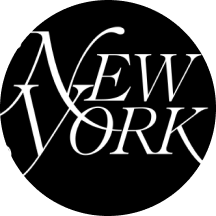

WASHINGTON – As President Donald Trump sees it, the Supreme Court faces a stark choice when it considers on Nov. 5 whether to uphold the sweeping tariffs he’s imposed on nearly every product brought into the United States.
Back the tariffs and the nation will have “unprecedented success.”
Strike them down and there will be “catastrophic consequences for our national security, foreign policy and the economy,” the administration told the justices in its written briefs before Wednesday's oral arguments.
While Trump’s rhetoric may be unusually dramatic for a court filing, there’s no question that the stakes are huge – for Trump’s agenda, the economy, the federal budget, presidential power and for businesses and households that are bearing the brunt of the tariffs.
“Just about every way you look at it, it’s a big deal,” said Daniel Walters, an expert on administrative law at Texas A&M University School of Law.
'Breathtaking assertion of power'
Trump has argued that trillions of dollars in new tariffs are needed to reduce persistent trade deficits, which he says have hollowed out the nation’s manufacturing base, undermined critical supply chains and allowed other nations to take advantage of the United States.
The businesses and states challenging the import fees say that they’re doing more harm than good, including raising costs and uncertainty for consumers and businesses.
And they argue the president doesn’t have the legal authority to take such expansive and consequential action.
“This is a breathtaking assertion of power,” lawyers for some of the challengers told the high court in a filing.
Not unusual for Supreme Court to hear major economic cases
To be sure, it’s not unusual for the Supreme Court to decide cases with big effects on the economy.
In 1935, the court narrowly upheld a change Congress made to contracts so that repayments couldn't be requested in gold rather than dollars, notes legal historian Stuart Banner, author of the book "The Most Powerful Court in the World."
Because President Franklin D. Roosevelt had recently devalued the dollar, a decision the other way would have increased most debts by 60%. The Roosevelt administration considered the case so significant that the president planned to disobey the court if the ruling came out differently, Banner said.
Michael McConnell, a Stanford Law School professor and one of the lawyers representing some of the businesses challenging the tariffs, said the first case he teaches in his constitutional law class is the court’s 1952 ruling that President Harry Truman could not seize private steel mills to keep production going during the Korean War.
“You can scarcely imagine anything more important than, at a time of war, being able to have armaments,” he said. “And the Supreme Court said, `No, there is no authorization for that.' And this is widely considered to be the Supreme Court’s finest hour.”
High court has considered cases central to a president's agenda
Historically, it’s also not unprecedented for the court to take cases as central to a president’s agenda as the tariffs are to Trump’s economic and foreign policy plans.
Matthew Fitzgerald, a partner at the law firm McGuireWoods who previously clerked for Justice Clarence Thomas, said the case reminds him of the court’s rejection of a challenge to President Barack Obama’s health care initiative.
“And there were justices on the court, even conservative-leaning justices, who were very wary of overturning a president’s signature achievement on any sort of questionable ground at all,” Fitzgerald said at a McGuireWoods event previewing the court's term. “I wonder if that same sort of impulse will play in here in Trump’s favor.”
But Alan Morrison, who teaches at George Washington University Law School, noted that – unlike Trump’s tariffs – Obamacare was explicitly created by Congress through the Affordable Care Act. The Supreme Court would’ve been taking on both the legislative and executive branches if it had struck down that measure.
“The law that Trump is relying on here is a law that was passed in 1977 and doesn’t mention trade at all,” Morrison said. "I can’t think of anything where a president has claimed this level of power over the economy.”
President's emergency authority could be expanded
That 1977 law, called the International Emergency Economic Powers Act, has historically been used to impose economic sanctions and other penalties on foreign countries. But the administration contends that the authority the law gives presidents to “regulate” importation in response to an "unusual and extraordinary threat" to national interests includes the power to impose tariffs.
The U.S. Chamber of Commerce argues it defies common sense to think that Congress meant to give presidents such “unprecedented authority to upend the domestic economy through taxation” without directly saying so.
“In other words, the President urged the court to uphold his tariff decisions because of their vast economic and political significance,” the influential business group wrote in a brief opposing the tariffs. “Yet it is precisely that significance which demands an unambiguous authorization from Congress.”
If the court doesn’t agree, Trump could use the same law to impose excise taxes on many other things, including the transportation of goods, wire communications, bank transactions and more, said Peter M. Shane, an expert on the separation of powers at New York University.
“He could put excises on lots and lots and lots of things,” Shane said. “That would be a very big deal.”
And a decision in Trump’s favor could also indicate how deferential the court will be to presidents in deciding when emergency powers can be triggered, said Walters at Texas A&M University School of Law.
“If this is expansively interpreted by the Supreme Court, that Trump is allowed to do this, it’s not hard to imagine there would be other emergency statutes that would open up other things beyond economic regulations,” he said.
A ruling against Trump would create a big budget hole
If the court rules against Trump, however, the administration might have to refund at least $90 billion in tariff revenues, according to data from U.S. Customs and Border Protection. (The amount will grow the longer it takes the court to reach a decision.)
“That would create a lot of problems for the federal government,” said Juscelino Colares, a trade expert at Case Western Reserve University. “This is the biggest trade case ever, by orders of magnitude.”
It could be a logistical problem, potentially subject to more litigation, and would also impact the federal budget.
In addition to paying back tariffs already collected, the government would not bring in about $2.2 trillion over the next decade that Republicans were counting on to pay for much of the cost of Trump’s big tax and policy bill, according to the nonpartisan Committee for a Responsible Federal Budget.
“It’s a massive amount of money,” said Marc Goldwein, the group’s senior policy director.
Trump could use other, non-emergency laws to impose new tariffs, but that would take time and may also face challenges.
Congress could find other ways to raise the revenue, such as through a business consumption tax that somewhat resembles tariffs.
But Goldwein thinks it's more likely lawmakers won’t replace the revenue, which would put the U.S. closer to the precarious situation of the national debt growing fast enough to spark a debt crisis.
“We’re kind of on the cusp of that,” he said.
Experts are 'flying blind' in predicting which way the court will rule
How the high court is likely to rule is anyone’s guess.
Colares thinks the odds are slightly in Trump’s favor.
“It’s not that the president is acting in an area where we’re not used to seeing presidents act,” he said. “Trade is diplomacy. Diplomacy encompasses trade.”
Shane thinks the odds are slightly against Trump.
“There are numerous other ways in which Congress has explicitly given tariff adjustment power to the president,” he said, “and it seems quite surprising they would do so by implication here.”
And Walters, the administrative law expert, said he can’t stress enough how much everyone is “flying blind in trying to understand what the court might do.”
“You have a lot of legal factors, political factors and more at play here,” he said. “It’s just not something that lends itself to a lot of certainty.”
(This story was updated to add a video.)
This article originally appeared on USA TODAY: Are Trump's tariffs too big to fail at the Supreme Court?
Reporting by Maureen Groppe, USA TODAY / USA TODAY
USA TODAY Network via Reuters Connect

 USA TODAY National
USA TODAY National
 New York Magazine Intelligencer
New York Magazine Intelligencer Vox
Vox America News
America News Local News in New Jersey
Local News in New Jersey Raw Story
Raw Story The Boston Globe Crime
The Boston Globe Crime